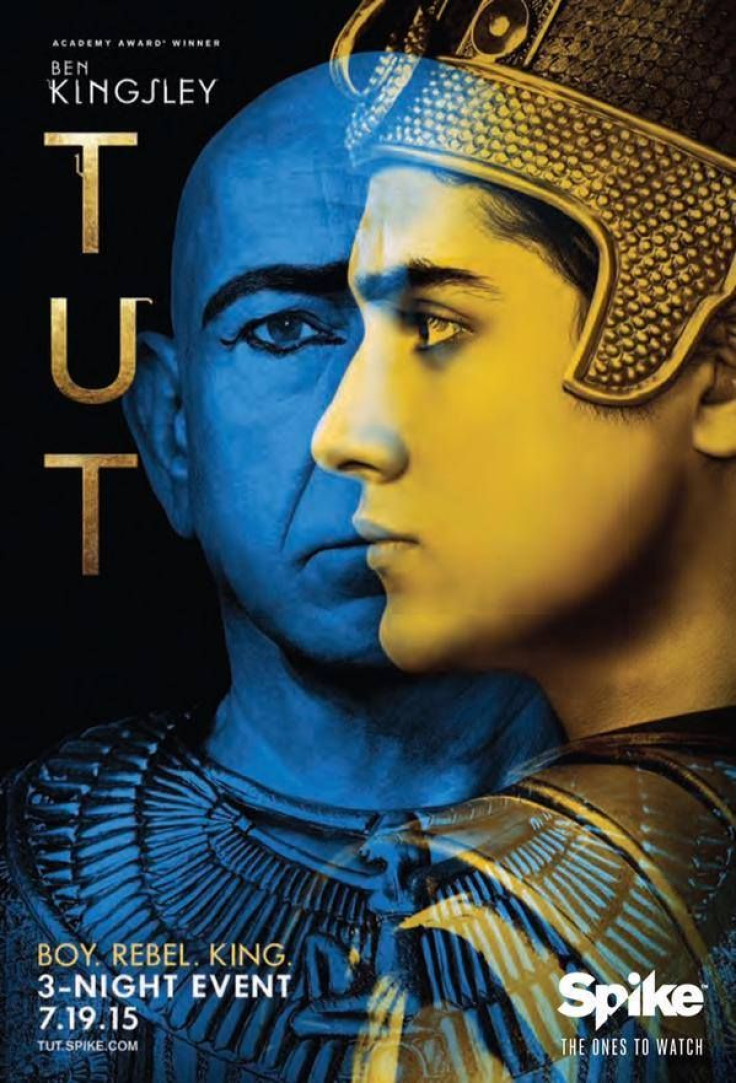'Tut' Night One Is More Than Cable TV Can Contain, But Makes Up For It With Near-Constant Action [REVIEW]

With a talented cast and a story of intrigue ripped from the bloody pages of history, it’s not a surprise that Spike’s “Tut” event series aims for the brutality that it does. However, the epic three-night event series tends to suffer from its network’s inability to really present its own content on screen.
“Tut” follows the story of ancient Egypt’s leaders during the reign of the boy king Tutankhamun. After the death of his father, the nine-year-old boy was given the most powerful position in the world while the adults around him forged ahead to make Egypt the great civilization we know it to be. “Tut” picks up with the boy king (Avan Jogia) all grown up, but neither considered a man nor a king to his people.
As the series opens, it’s clear that King Tut wants to begin making decisive political moves to make the people of Egypt understand that their ruler is of age and ready, willing and able to lead them to glory. The series seems just as eager to prove this to the audience as well, spending the first half of Night One establishing Jogia as not just some child with a chip on his shoulder, but a sword-wielding decisive man of the common people. Every chance he gets, he’s sneaking away from the lavish castle to rescue women in the streets and get to know the regular people of Egypt. It’s a transparent attempt to tug at the viewer’s heart strings by showing this man in power actively not ignoring the “have-nots” in his kingdom. However, it can be forgiven for its laziness given that the speedy drama isn’t trying to make the audience dwell on this aspect of the character.
Once Tut and his intentions are established, however ham-fisted, he finds himself engaged in action almost immediately against the show’s resident bad guys - the Mitanni. Unlike other shows of its like, “Tut” doesn’t get bogged down in political intrigue or personal drama for too long before showing off a little bit of sword play and blood. This ends up being its saving grace as it breaks up the rather complicated and ill-explained monotony that is the Egyptian government. The show is hoping to capture the same strategy game that “Game of Thrones” tapped into with its characters, but has to do so with a hand tied behind its back given that its entire plot has to be governed largely by the events of history. As it is for “Tut” and life, when politics fail, swords succeed.
While the nuts and bolts of the power struggles may not be explained well, the intentions of the major players certainly are. “Tut” doesn’t seem to care if the audience knows how someone is scheming against the hero as long as they know that someone is scheming against the king. This is made evident in a phenomenal speech from Ay (Ben Kingsley) to his son, and possible heir to the throne of Egypt, when he tells him that he will see him take power – he needs only to wait for opportunity to be created and seized. It’s a dramatic scene complete with a scary dagger cut to the hand just to emphasize a point, but it ultimately explains nothing in terms of who these people are and what’s in it for either of them.
The chess game simply isn’t as well done as fans of high-concept dramas like “Game of Throne,” “The Borgias” or “The Tudors” may be used to, which is one example of the show’s inability to really dive deep into its own drama. One has to wonder if bringing such a big production to cable TV might have made “Tut” suffer. It’s unable to show graphic violence, but hinges on action. Some storylines deal with relationships and sexuality, which cannot be explicitly portrayed on cable (not that that stops the show from spending a long time on awkward PG-13 sex scenes). Finally, it wants to portray a bloody road to greatness for the infamous King Tut, but is unable to explore its own character’s core interests beyond the general concept of “power.”
In the end, “Tut” falls short of some of the other shows within its same genre. However, after Night One it appears to have all the same building blocks as those shows and is demanding significantly less of a time investment from the audience to see how it all comes together. The show is aware of its own pitfalls and is actively compensating for them. While it may not be the gold standard of TV viewing, its action scenes and ability to move a story for miles in just two hours are more than enough to merit spending the six hours to see how it ends. After all, how often does one get that kind of immediate closure in television these days?
“Tut” airs Night One on Spike Sunday, July 19 at 9 p.m. EDT.
© Copyright IBTimes 2024. All rights reserved.












